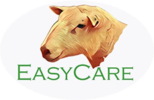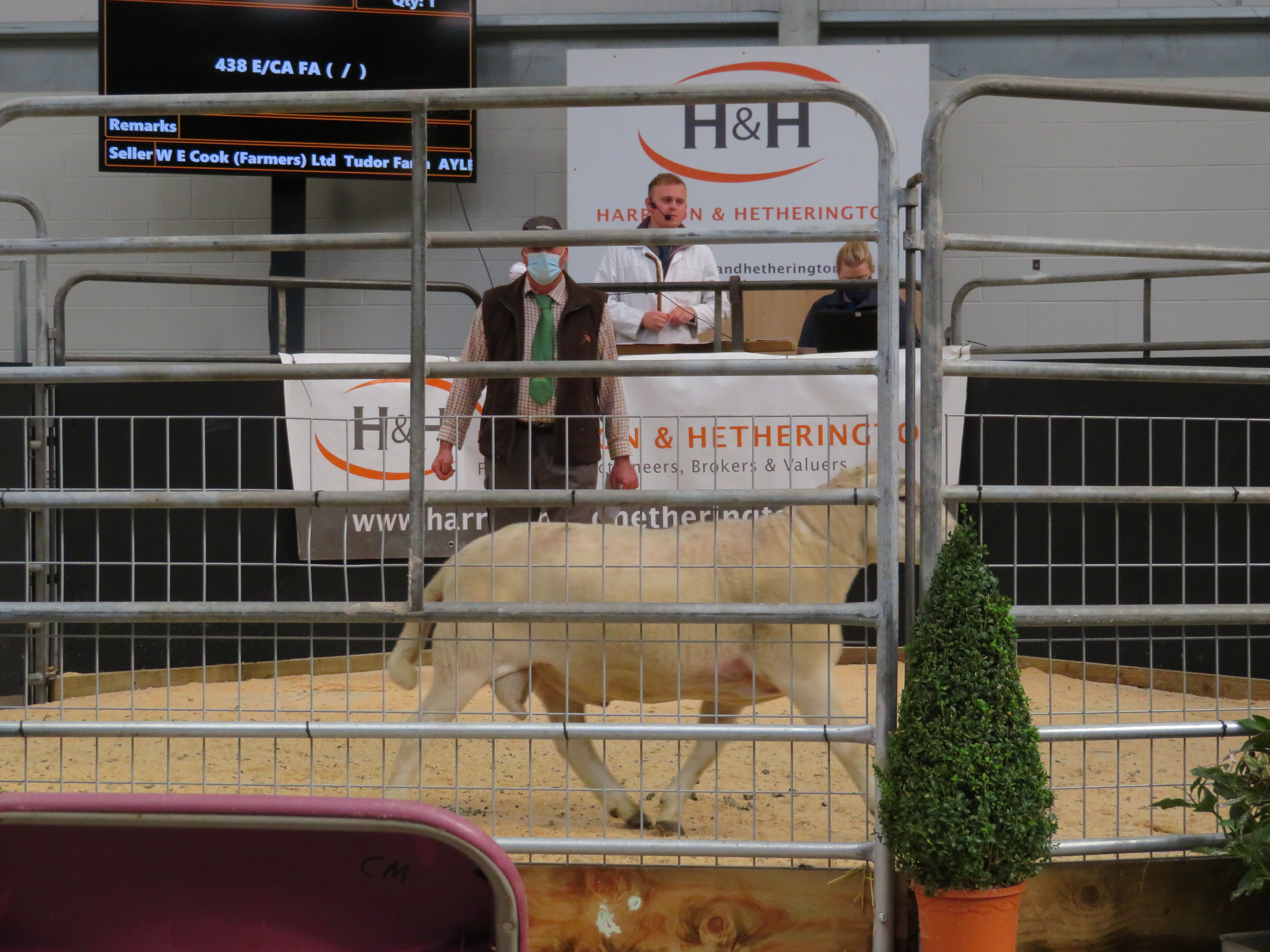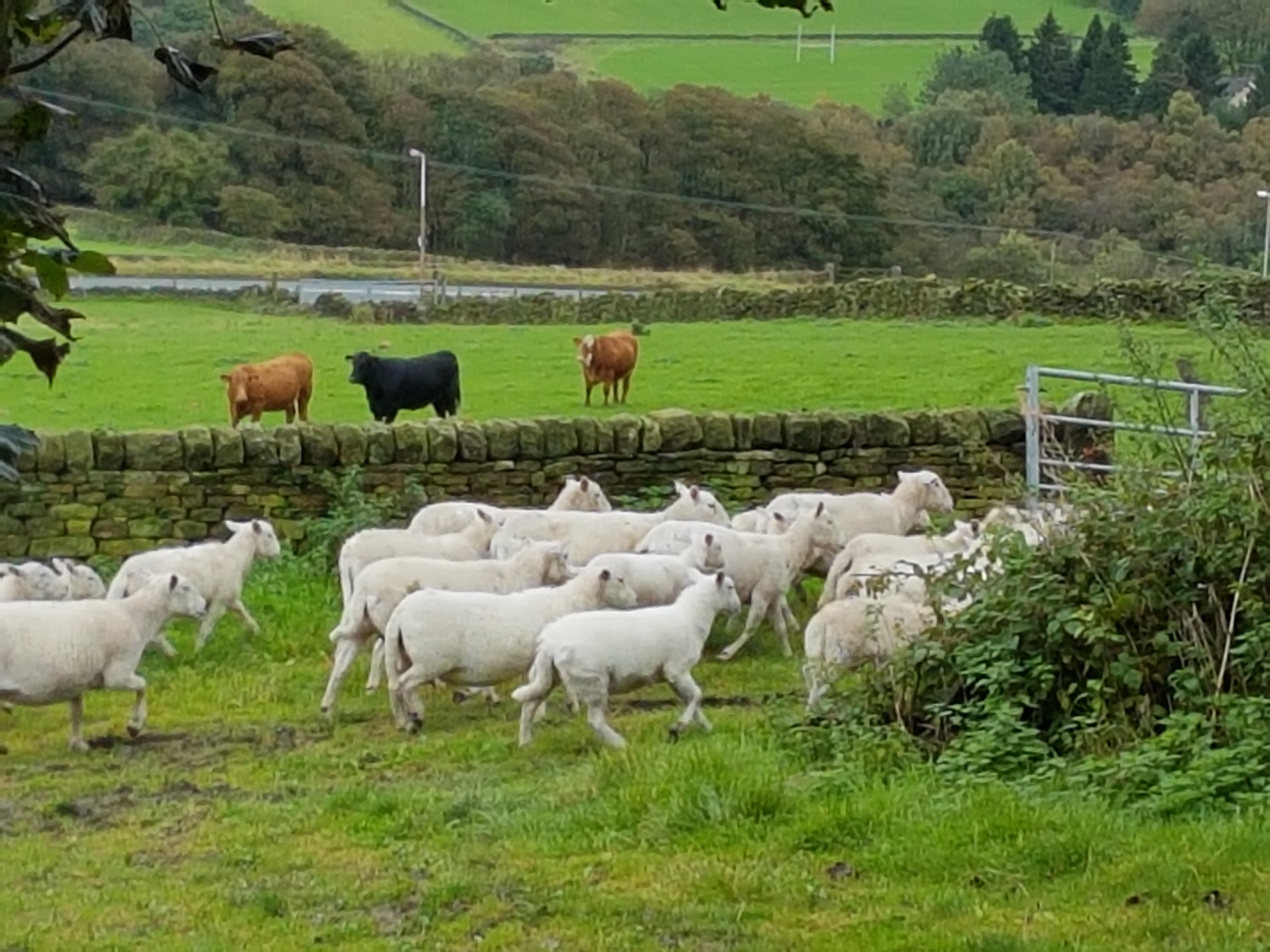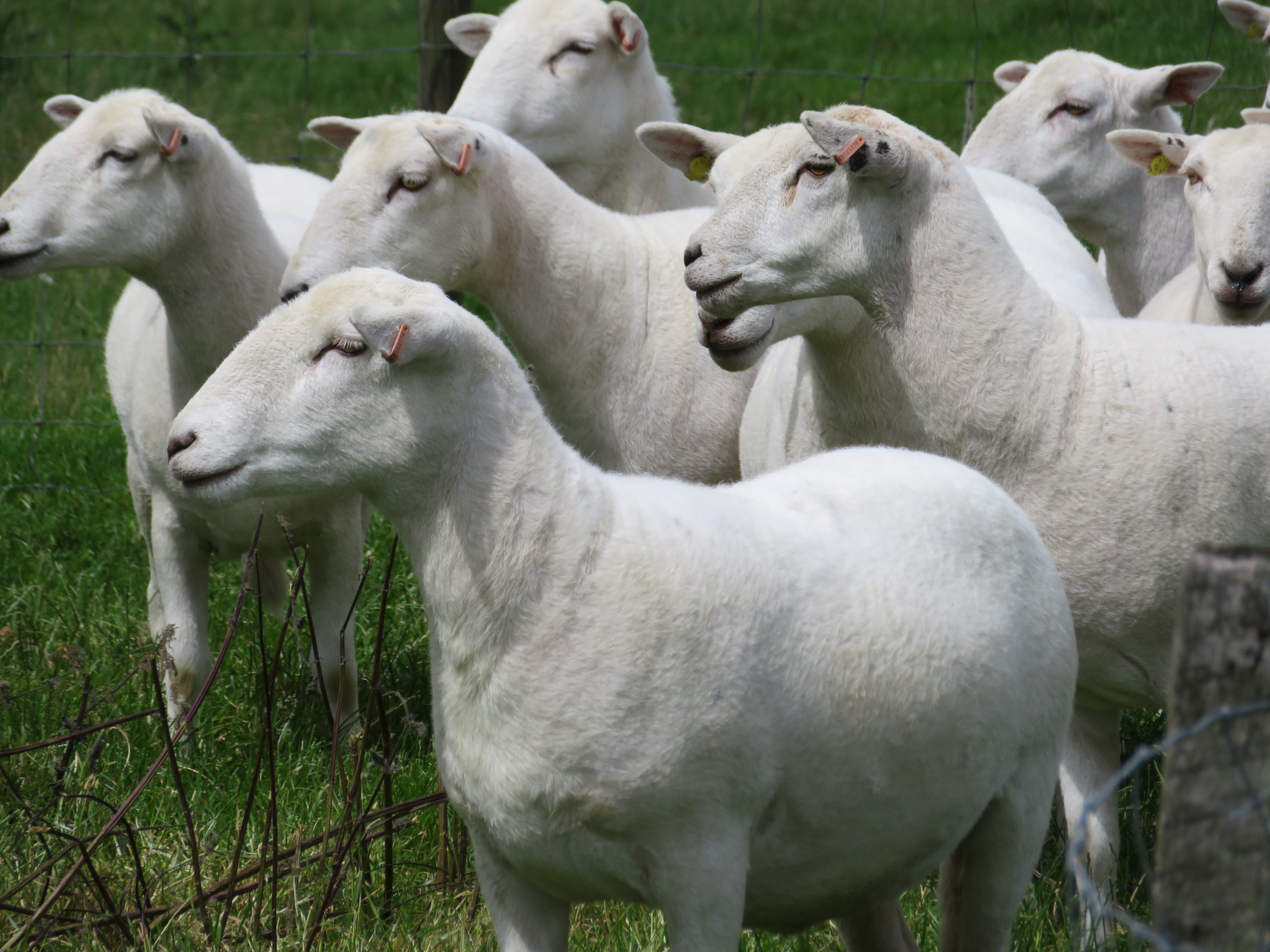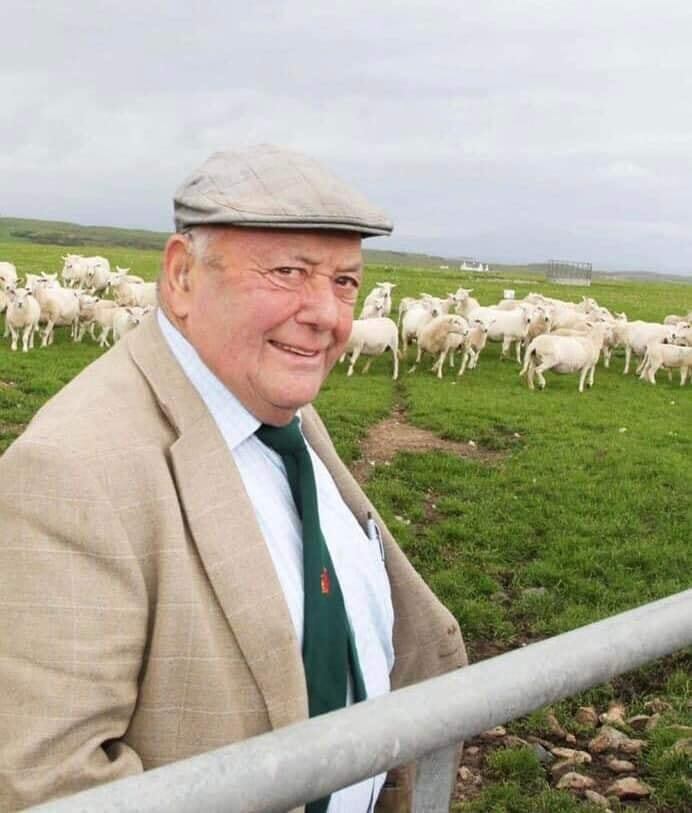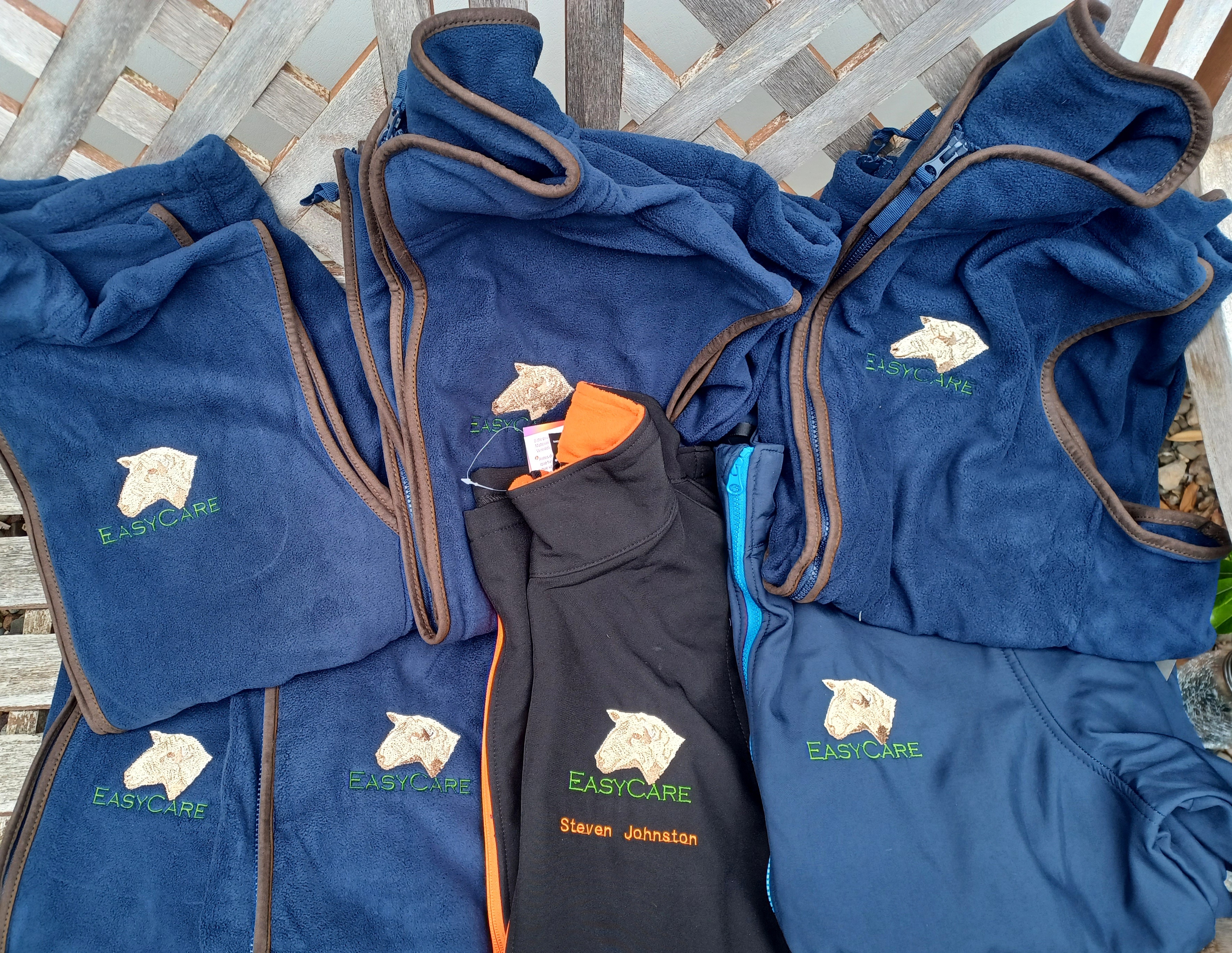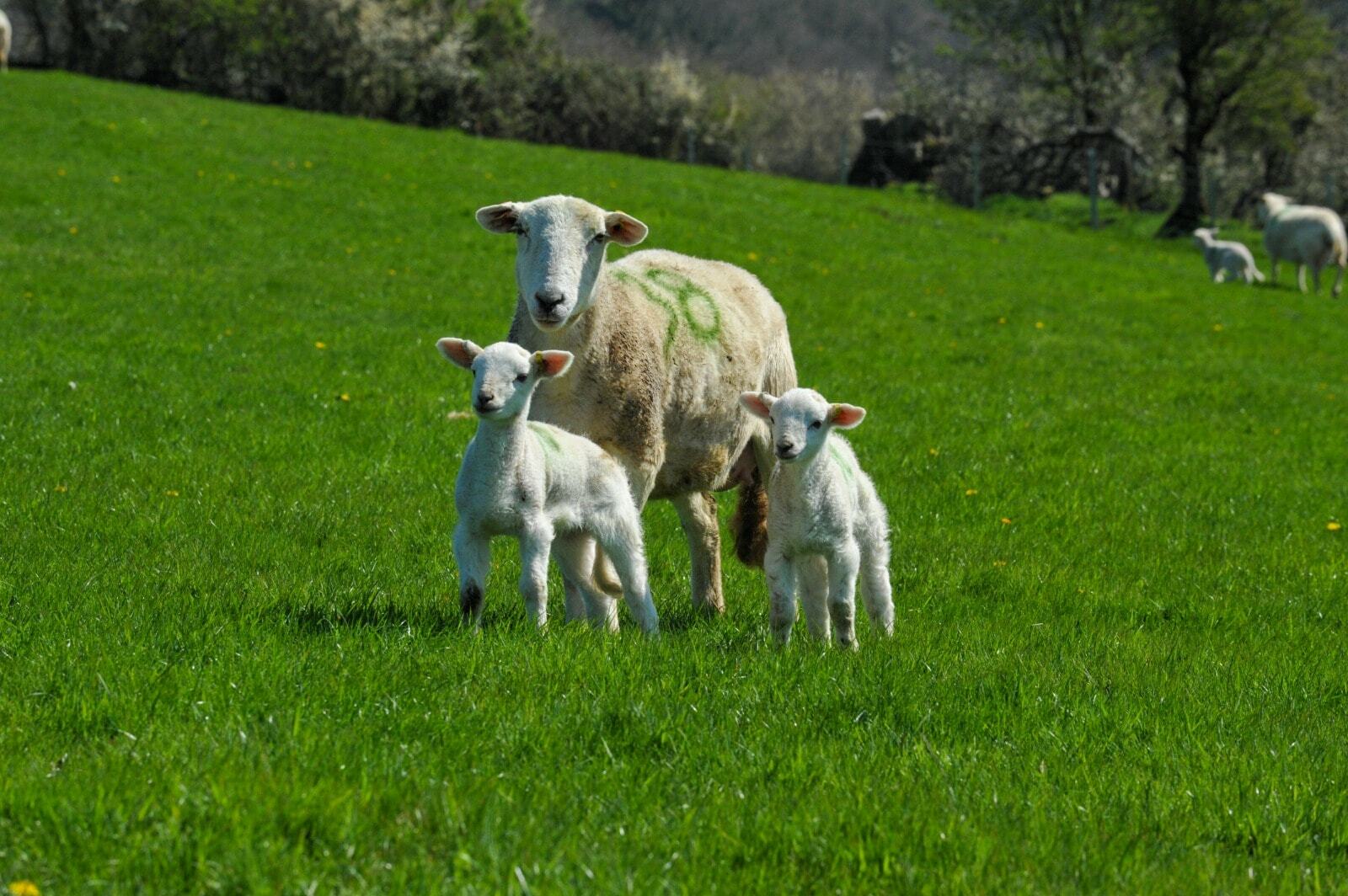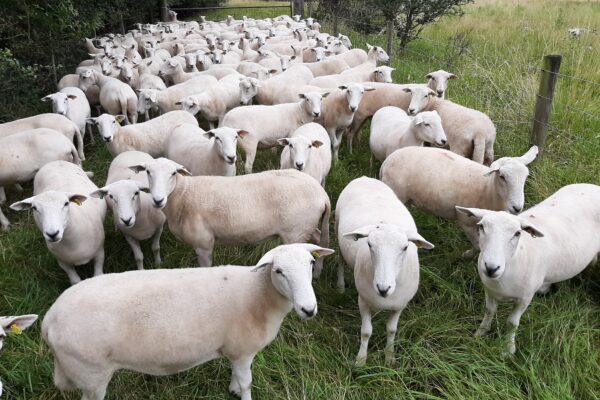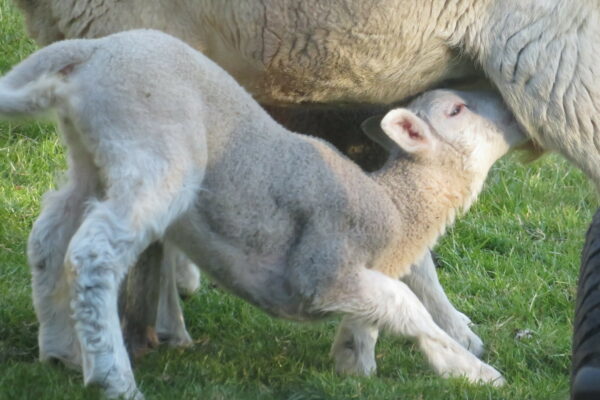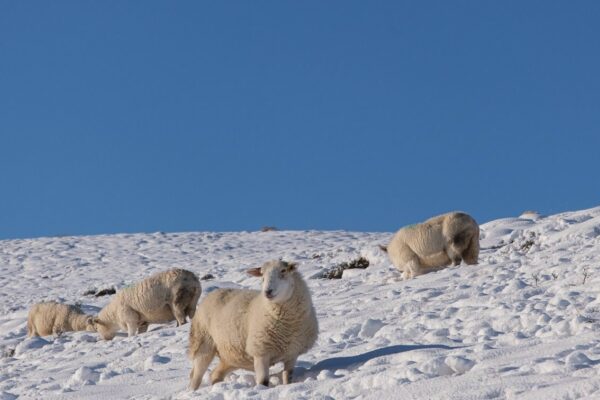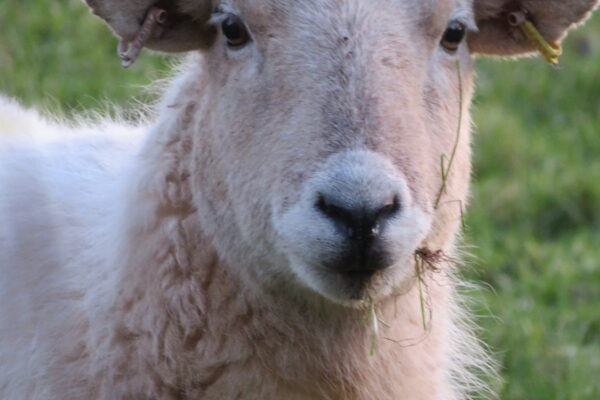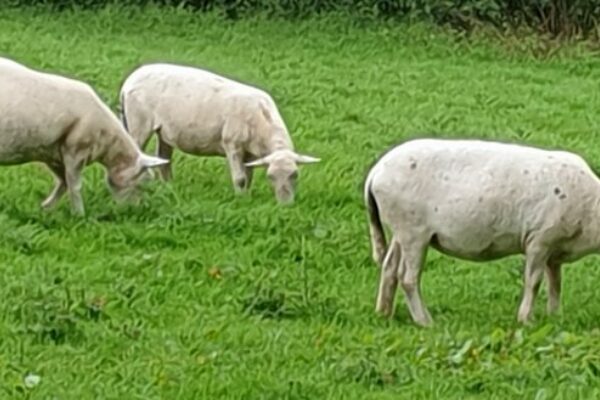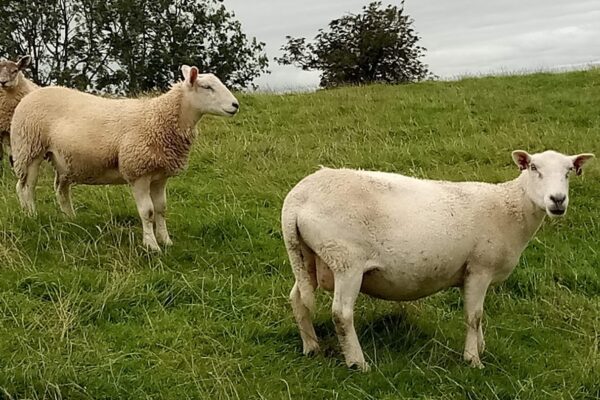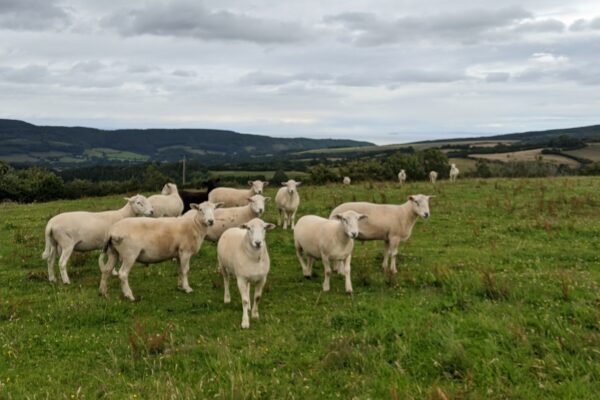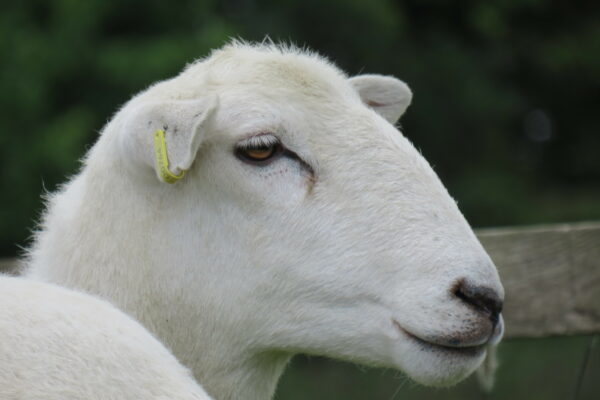LEADING THE WAY IN LOW CARBON FOOTPRINT AND LOW INPUT SHEPHERDING SINCE 1965.
EASYCARE, THE FIRST AND THE BEST. LEADING WHERE OTHER'S FOLLOW
The ultimate fleece shedding, low maintenance, prime lamb sheep breed. Specifically bred for ease of lambing, low input costs and maximum meat production
The EasyCareTM Sheep is a revolutionary breed of sheep which requires minimal shepherding and veterinary care, sheds its fleece in the summer, does not need shearing and yet offers excellent meat yields and lambing ratios. The fleece is kempy, leaving a dense hair covered in lanolin. The shed fleece rapidly decomposes as a natural soil conditioner. The breed seldom succumbs to heat stress yet the dense nature of their fleece means they can withstand harsh weather.
The ewes seldom require assistance at lambing. They have strong maternal instincts, are milky and will rear their lambs without human intervention.
The breed is a well-established commercial sheep with flocks of 1,000’s all over the UK, yet it is also an ideal sheep for the small holder. The rams can be used over other breeds to remove the wool. In three to four crosses the fleece should be shedding, this is ideal for hefted flocks as it means the flock remains on the hill yet acquires the benefits of the fleece shedding coat.
The breed is proving extremely popular and successful with breeders in today's farming environment. The EasyCareTM Sheep Society was formed to promote this wonderful breed and to ensure its continued development.
The Society has Society Sales in various regions of the UK. We also have the Annual AGM and Open Day at a different EasyCareTM breeder’s farm each year. The farm visits are viewed as an excellent way to meet new friends and network. We also attend National Sheep Association Events throughout the summer months.
The Society has Regional Co-ordinators who are all volunteers. They are there to help promote and discuss the breed with anyone who is interested in EasyCareTM Sheep. See theCo-Ordinators list for details.
Society Membership
£ 35
Per annum- Sell stock on the website & put photos on the advert
- Sell stock through Society Sales
- Receive Society newsletters BUT ONLY IF YOU SUPPLY A WORKING EMAIL ADDRESS
- Pay by cheque, bacs or standing order
Latest News
LOCKERBIE SALE CANCELLED
IMPORTANT ANNOUNCEMENT - LOCKERBIE SALE CANCELLED AND CARLISLE PUT BACK TO THE ORIGINAL DATE FRIDAY 26 SEPTEMBER 2025
Email from H&H an hour ago
Hello All,
Following on from the news from APHA as of the 21st September the rules now states
non-pregnant females of any species:
It is recommended that animals are fully vaccinated in accordance with the vaccine manufacturer’s instructions.
From 21 September, testing is not required to move non-breeding animals or females that are not pregnant from the restricted zone to Scotland.
Breeding males:
Sheep
It is recommended that animals are fully vaccinated in accordance with the vaccine manufacturer’s instructions.
For movements from the restricted zone to Scotland, male breeding sheep must, prior to any involvement in breeding activity in Scotland, undertake a pre-movement test within 7 calendar days ahead of the movement, or a post-movement test following the movement, with a negative result obtained.
With this in mind, this means that your society sale that fall on the weekend of the 26th and 27th September can fall back on to their original dates at Borderway Mart.
Friday 26th September
Lleyn
EasyCare
Saturday 27th September
Badger Face Texel
Beltex
Blue Texel
Club Forest
Hampshire Down
Kerry Hill
North Country Cheviot Park type
Roussin
Texel
Kind regards
Anna
Anna McGregor
Pedigree Sheep Sales Administrator
Harrison & Hetherington Ltd
Borderway, Rosehill
Carlisle, CA1 2RS
DDI: 01228 406235
Mobile: 07922 001114
Office: 01228 406230
WE HAVE HAD SAGA'S FOR SALES BEFORE AND NO DOUBT WE'LL HAVE THEM AGAIN BUT WE ALWAYS STRIVE TO WORK A WAY THROUGH THEM.
THE PHOTO IS CARLISLE IN THE 2020 PANDEMIC
Read more
Cattle can be grazed with EasyCare sheep
EasyCare sheep can be safely grazed alongside cattle without causing the cattle to choke on wool.
There has been a jocular comment made by Jeremy Clarkson in a Sunday Times article [10 November 2024] that care must be taken not to graze EasyCare sheep and cattle together. Some members have asked that the Society make a correction for this claim.
For clarity, the fleece shed by true EasyCare sheep in spring is very short, kempy and sheds in small tufts. It is for the main part removed from the ground and sometimes straight from the sheep's back, by wildbirds to line their nests. The rest is taken into the ground by the worms to act as a soil conditioner and natural nitrogen.
No harm will come to cattle if they graze alongside EasyCare sheep.
Read moreEasyCare Sheep Ireland is up and running
EasyCare Sheep Ireland is up and running, Iolo Owen gave the project his blessing before he died and we look forward to getting the EasyCare sheep word out to a wider audience.
See what they are doing by clicking on the link
https://easycaresheepireland.i...
Read moreNEOGEN BLOODTESTING FOR SCRAPIE & MYOSTATIN
PLEASE NOTE THAT NEOGEN WILL ONLY ACCEPT NOSE SWABS FOR SCRAPIE AND MYOSTATIN TESTING FROM NOW ON DUE TO THE IRREGULAR RESULTS FROM BLOODS
Read moreDISCOUNT FOR EASYCARE SHEEP SOCIETY FULLY PAID UP MEMBERS ON DATAMARS AND SHEARWELL DATA TAGS
The Society has got discount for the Society members on sheep and cattle tags from two large manufacturers, Shearwell Data and Datamars Group formerly Roxan.
PLEASE TELL THE MANUFACTURER WHEN YOU ORDER YOUR TAGS THAT YOU ARE A MEMBER
The manufacturers will check you are a paid up member before they add the discount to your order.
EasyCare Breeding sheep tags must have EASYCARE stamped on them.
Datamars [was Roxan] - discount agreed for members FOR SHEEP TAGS PLUS ANY OTHER SPECIES
Neither Datamars or Shearwell Data charge any extra for management information to be printed on the tags
Datamars also offer a better price on cattle tags in addition and free replacements on their visual tags all offered whilst the animal is on the original holding of birth.
In addition to this they offer a discount on our ranges such as Tru-test Readers, Pel Electric Fencing, Animal Health Simcro & NJ Phillips, Kaiwaka Stormforce to name a few.
Stuart Baldock - ENGLAND & WALES
Business Development Agent
Livestock management solutionsMobile: 07415 420040
Susan Orr
Business Development Manager Scotland
Phone: 07495 112913
Email: susan.orr@datamars.com
Website: livestock.datamars.com
Shearwell Data
5% DISCOUNT ON TAGS, BOTH CATTLE AND SHEEP
Updated August 2024
Read moreMERCHANDISE FOR EASYCARE MEMBERS
The Society has linked with Lauren Garbutt to allow members to buy merchandise with the EasyCare logo on.
You can buy directly from Lauren. You can buy double zipped fleece gilets and jackets, base ball caps and soft shell jackets and gilets. The fleece gilet with farm name, your name and our logo is £30.
You can put extra wording on the back for an additional fee.
Deal directly with Lauren by email
lauren_garbutt@outlook.com
Read moreSUBSCRIPTIONS AND EMAIL ADDRESSES
THE SUBSCRIPTION FOR A YEAR CHANGED TO £35 ON 1ST JUNE 2024.
PLEASE PROVIDE OUR TREASURER, JUNE TAVERNOR, WITH ANY CHANGES TO EMAIL ADDRESSES AS WE ARE GETTING A LOT OF RETURNED NEWSLETTERS FROM 'NOT RECOGNISED' EMAIL ADDRESSES
WHEN PROVIDING YOUR EMAIL ADDRESS PLEASE DO IT CLEARLY TO PREVENT ERRORS
Updated July 2024
Read moreSOCIETY SALE PROTOCOL FOR SELLING RAMS AND EWES
Rams & ewes - Society Sale Protocol
We ask that breeders check their rams prior to selling. Do a check of the testicles, make sure the rams are good with their mobility etc as we will pull out anything we feel is not to breed standard [see the Breed Standard on the website] or is suspect in mouth, legs, feet, or testicles.
With regards to a fertility test we have reserved judgement on this as to be honest it simply states on the day it was tested it was fertile but from the sale in September to the rams going out at the beginning of November onwards anything can happen to them which is beyond the Society's control. Therefore, it is prudent to either put extra rams out or take up insurance.
Ewes must be sound in the udder, legs, and mouth. They must have fully shed their fleece without assistance. They must be clear eyed and free of any injury or lameness.
All rams and ewes presented for sale must be tagged with double tags bearing the word EasyCare or EC on their tags.
If you are MV accredited you will need to provide the paperwork beforehand to the auction mart and they will provide separate accommodation. All MV accredited stock is sold first into a clean ring. The Society does not currently require all stock to be MV accredited. Most, if not all markets ask that stock is dipped or jabbed for scab. Withdrawal dates must be noted and stated on the entry form.
With regards other health checks, if the vendor has carried out certain procedures e.g. Heptovac, worming etc we ask that this is made known prior to the sale so it can be put in the particulars. If blood tests have been taken to establish a ram's myostatin status or scrapie status, again the reports for these tests must be shown to the market and the information presented in the particulars. We also recommend you laminate copies of the test results and put them on the selling pen as it makes it clear to prospective purchasers what they are buying. Provide the results to the purchaser after the sale so they have the results for their own records.
Any further health checks are entirely at the vendors discretion we would simply say that it is good farming practice to isolate newly purchased stock for a period to assess their health.
If the seller has in mind to make their stock available for export, they must be MV accredited, must have an up-to-date Brucella test and possibly more legislation could be in force by the time the September sales arrive so a visit to the Animal and Plant Health website is always a good idea.
As a Society we can only make a judgement based on what we see on the day. We make it clear to everyone to present strong, healthy stock in the best condition they can but without overlooking the fact that we are a commercial breed and purchasers don't expect rams to have been stoked full of food or preened and polished.
We do not issue pedigree certificates.
Finally, you must be a fully paid-up member to enter the Society Sales. Membership is £35 per annum.
Read moreTHE MYOSTATIN GENE - EXPLAINED
The myostatin gene in the EasyCare Breed
The myostatin gene in sheep denotes an increase in lean meat percentage and a reduction in fat content.
First discovered by scientists in Australia, the gene is most prevalent in the Texel breed, but luckily the EasyCare breed to some extent, also carries it.
When individual animals are tested for the gene, the results from the laboratory will signify a negative, a single copy myostatin denoted by a T+ or a Twin copy denoted as a T+T+, which could be described in conversation as being a Myomax Gold carrier. Gold is a double gene carrier. A single carrier is often referred to a Myomax Silver. This is a single copy carrier. No gene present will be denoted as wildtype. The report can also say carrier which means the animal has one copy of the gene.
Breeders who need to improve their carcass grades in pure bred EasyCare sheep will find that by using a ram with a single copy myostatin, 50% of the progeny will produce some 5% extra lean meat.
Those however, who use a ram with a twin myostatin copy will expect two advantages within their flock. Firstly, all progeny will possess an extra 10% lean meat and 7% less fat content which means of course that lambs can be taken to extra weights before being penalised for being over fat.
The second advantage to using a double myostatin ram is that all of his progeny will carry at least one copy of the gene. This is of course a simple but effective way of introducing the myostatin gene to all replacement stock.
By persisting with a double copy ram, all the flock will carry the gene within four or five years.
It is worth emphasising that there are no disadvantages to introducing the myostatin gene. Any fear of lambing difficulties can't be ignored, this is one element which we must retain at all costs but science shows the presence of the gene has no effect on lambing ease.
One thing that is worth pointing out is that there is no connection between a myostatin carrier and growth rate and therefore it is a wise move to test only lambs which you feel are above average weights at testing time.
Only test rams without horns and who are fully fleece shedding, have sound legs, good jaws and teeth and good feet. A bad sheep is a bad sheep regardless of whether is carries a double copy of the gene or not.
It goes without saying that it is absolutely vital that there is no cross contamination of blood samples as that will render the whole test a waste of time. Gloves must be used, new ones with each animal. You can take nose swab samples to get the necessary fluid to test for the gene. You must get plenty of 'snot' on the swab.
It is worth repeating that there are no negative effects to the gene and that you can proceed with confidence of a positive outcome for carcass improvement. The percentage of O grades will decrease significantly and R3Ls with some U's will dominate the grading sheets.
If you are considering testing for myostatin it is good practice to also include request for a scrapie test as well. It is desirable to get as many ARR/ARR tested rams into the breeding population.
All test results must be shown to the purchaser prior to sale and must go with the animal when sold.
By Huw Thomas [edited and updated by Louise Hobson] UPDATED JUNE 2023
NEOGEN in Ayr can be used to test the samples. Ring 01292 525600 and ask them to email you an EASYCARE SHEEP recording form and nose swab kits. You pay over the phone. 20 kits cost circa £52 with VAT. Each is wrapped individually and has its own code to place alongside the ear tag number.
IT IS ESSENTIAL YOU COLLECT ENOUGH BODY FLUID ON EACH SWAB TO GET BOTH THE MYOSTATIN AND SCRAPIE TEST DONE WITH EACH TEST.
Read more
